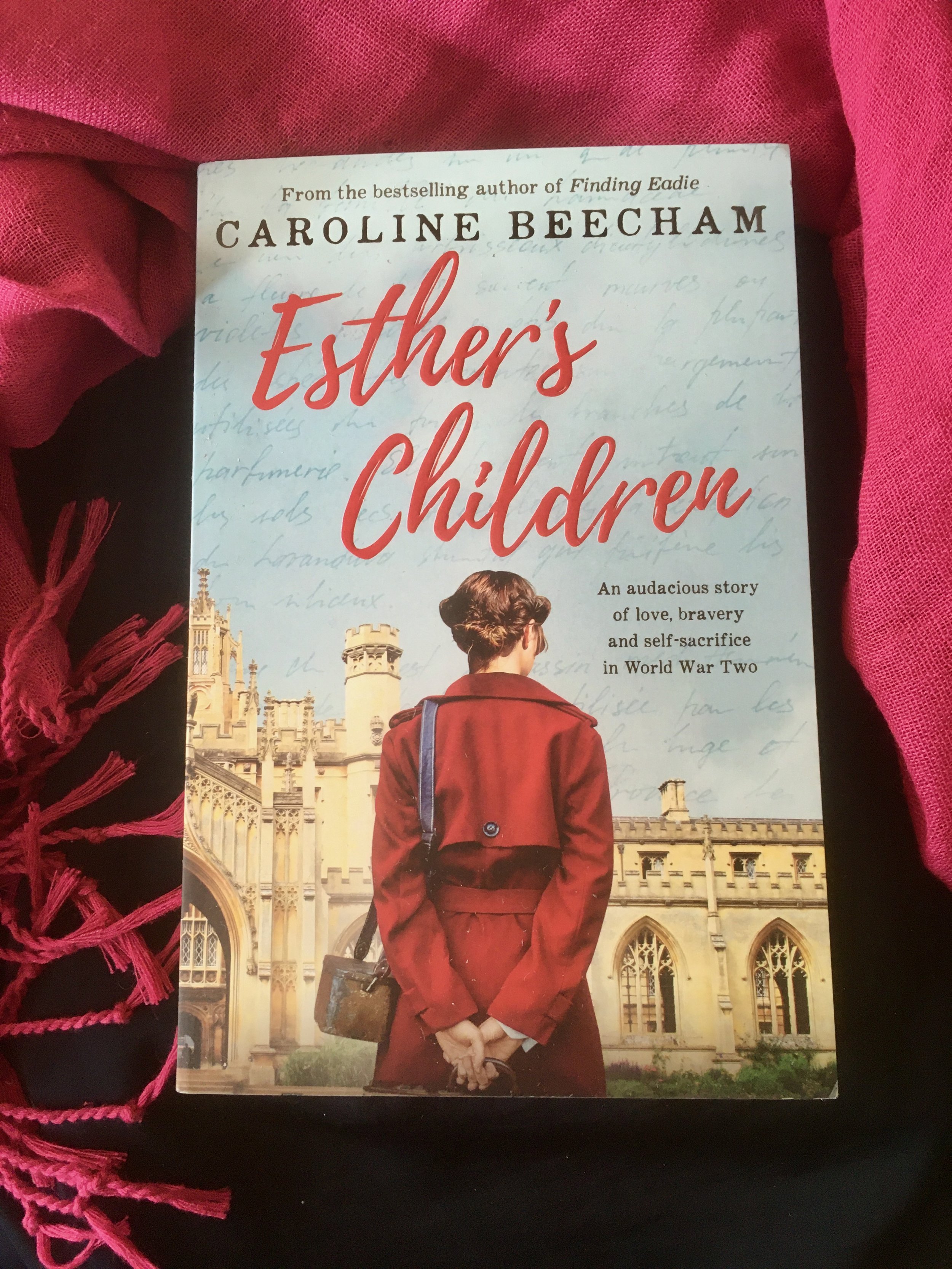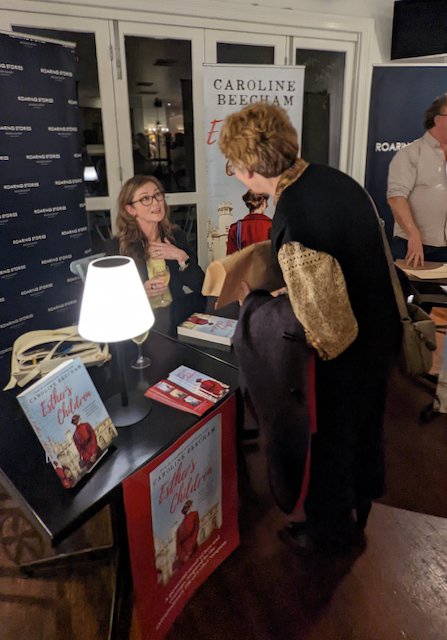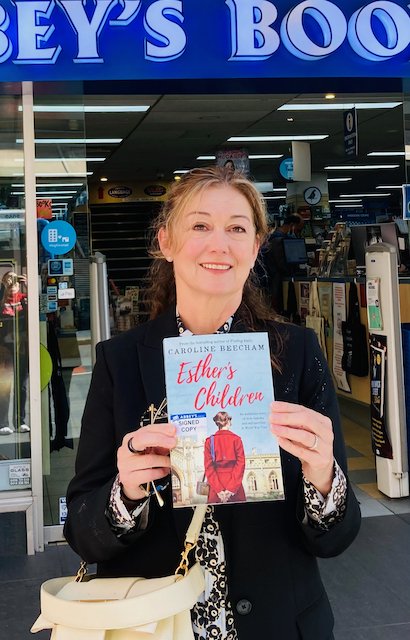What do you think Esther would say was her greatest achievement?
Gosh, hard to say. She was very proud of her children and had scrapbooks with newspaper cuttings of all their key accomplishments. Probably her sixteen Nobel Prize winners and seventy-four fellows of the Royal Society and thirty-four of the British Academy.
Please tell us about your journey to publishing. Do you write full time or share it with another profession?
I wrote a lot for film and television in my first career as a producer and so thought I would give writing a go when I had a career break to have children. I did a MA in creative writing at UTS and then continued learning about craft through courses at the Faber Academy and Curtis Brown in London. I always thought you’d reached a point where you knew what to do to start but I realise now that you never stop learning, you just reach a stage where you are ready to tell your story. Lucky for me my publisher at A&U liked Maggie’s Kitchen and I was in England on a holiday with family when I received the email saying she would like to publish it; I didn’t frame the email but it’s safe to say that its treasured. Now I write full time; there’s a lot of research that goes into historical fiction writing and I have published four books in eight years so that’s a two-year turnaround for each title. That time includes research, writing and the editing process which is quite complex when there is a lot of historical information that needs to be accurate. Lots of fact checking and so I’m grateful to the wonderful editing team at Allen & Unwin.
Have you always wanted to be a writer or was it an interest you developed? Was there a book or an author that inspired you or a special moment when this passion sparked?
I’ve always like creating whether it was poems as a kid, sending ideas for campaigns off to advertising agencies, which I did, or just making up stories. As I mentioned, I’ve been lucky enough to write in my career as a producer and now as a fiction writer. There is no one particular author who inspired me as different writers have affected me at different times but if I had to signpost authors who guided my journey they would include Thomas Hardy, Emily Bronte, Sarah Walters, Maggie O’Farrell, Rachel Joyce, Chris Cleave, Frances Liardet, Sarah Winman, William Boyd, M.L. Steadman, Natasha Lester, Anthony Doerr, Kirstin Hannah, Paula McLain, Maggie Shipstead, and Kate Quinn—as you can see it’s a long list!
If you could time travel to the past to do research for a novel, when and where would you like to go and who would you like to meet?
I would like to go back to 1930s and 1940s Britain and America to meet some of the film-making pioneers and the stars; you can guess why!
Would you like see Esther’s Children as a movie? If so, who would you like to see play the main characters?
I would love to see it as a TV drama and my dream cast would be Saorise Ronan as Esther with Jonathan Bailey as Harry, or Clare Foy and Nicholas Hoult. Dream big, right? But I would also love to know who readers see in these roles...
Are you working on any new projects? Are you able to share a little of what you are writing?
I am working on a new project and have put two ideas on the back burner when this one came along. It’s a wonderful setting and another story set during the Second World War and again, another part of history that’s unexplored. It’s also a world I am familiar with, so I’m really excited about researching it, in fact I’m off to England at the end of June to visit some locations and access archives. I can’t say any more than that as I don’t want to give too much away but the main thing is that I’m excited to get to my desk and start writing each day, which is a truly special feeling.
Thanks so much Caroline for being my guest and sharing the background of your story. I wish you much success with your inspiring new novel Esther’s Children!


